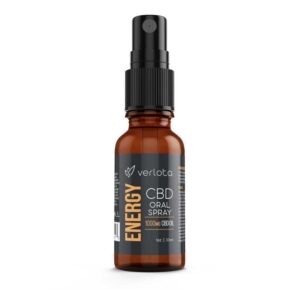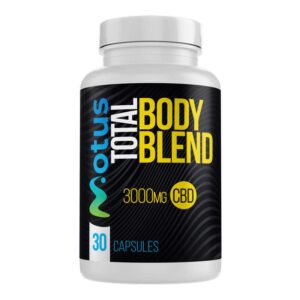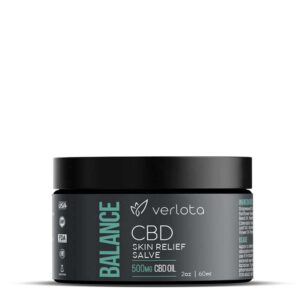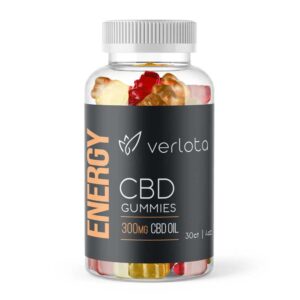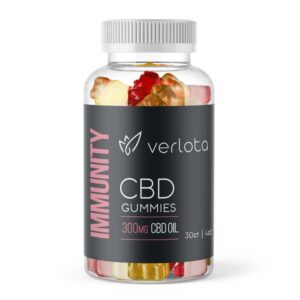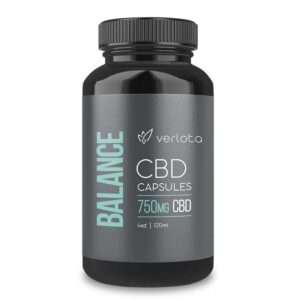If you’re a habitual person, then you’re probably reading this blog because one of your daily healthy habits is to continuously check out the awesome content at Verlota.com – shameless plug, I know, but you’re here aren’t you ;). Most people have a system to their everyday life, including everything from schedules for work, play and consistency to their behaviors as they navigate the challenges of each new day. These are the essential components of what we call “habits” – things we do, for good or ill, that define who we are, what we like and how we go about them. Something that many habitual people don’t consider is WHY they form certain habits.
Have you ever wondered why you need coffee in the morning? Why do we go for runs early in the morning or late at night? Why do you need to follow a bedtime routine in order to get proper rest? And above all else, why do we commit to certain habits when they might be detrimental to our health?
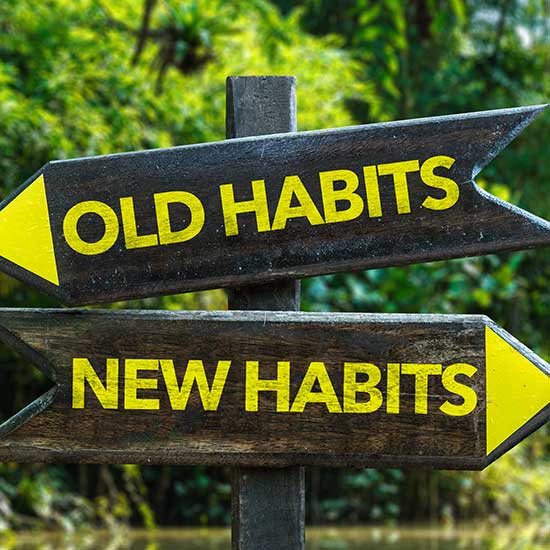
There isn’t a “one size fits all” answer for evaluating what are healthy practices because health is unequivocally unique to each and every person. Some of your favorite habits might be just fine, while for others they might be detrimental to their health & wellbeing. Habits like chewing gum or drinking tea for all occasions won’t cause you any bodily harm, but others like smoking and drinking alcohol or caffeine obviously pose significant health risks.
We understand that many peoples’ habits are formed out of convenience rather than necessity, but if you want to be healthy, happy and live as long as possible you need to be cognizant of the pros & cons of your habits. Healthy habits aren’t exclusive to eating kale, biking to work or sleeping 8-10 hours every night. On the contrary, most habits of healthy people include a combination or comfort, convenience and efficacy, in various orders of importance.
Are your habits born out of nostalgia, learned behaviors from family or friends? Maybe you’re more of a “if the shoe fits” kind of habitual person whose healthy habits are meant to make your life easier? Or perhaps you’ve accumulated a set of behaviors because you know that they help you to be a better, healthier person?
If you’ve ever wondered about your habits and how they might be helping (or harming) your progress in this journey that we call life, then this article is for you. We’re going to put our minds together and investigate some of the best healthy habits of living a fulfilling life.
Let’s make a habit of knowing how to identify healthy lifestyle habits so that we can feel good about the little things that make us tick and worry less about those nasty vices that bring us down.
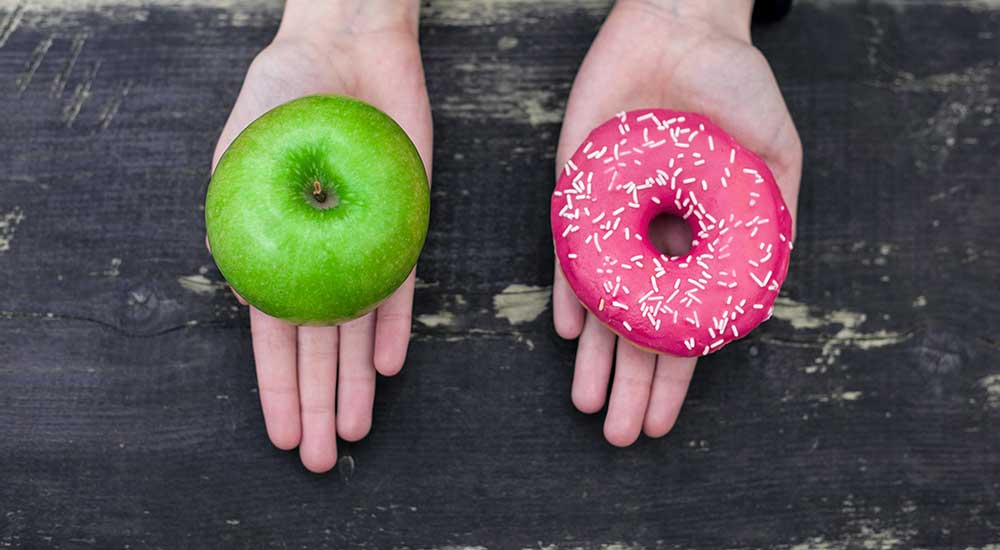
WHY ARE HEALTHY LIFESTYLE HABITS IMPORTANT?
The first and most critical concept you need to fully understand about habits is how we adopt them into our lifestyles. It goes without saying that the majority of our habits are learned/adopted from the people we surround ourselves with. Family, friends, coworkers and colleagues form the group of influencers that have the most impacts on how we think, behave and feel. Habits can come from other sources too, such as through learning at school, through media or content, and activities like sports or hobbies.
Wherever you developed your habits isn’t really the crux of the matter, however, because it’s not the source that determines whether a habit is healthy or not, it’s the substance. Why we begin emulating certain habits is oftentimes subconscious – we aren’t always aware of what, how or why we’re doing something unless it’s pointed out to us.
Case in point, let’s use the example of drinking coffee in the morning as an instance of a healthy habit that can also become unhealthy. For most coffee drinkers, the WHY factor for drinking coffee is simple: a need for energy, a bump, a boost, or a waking nudge to start your day. The need for wakefulness is apparent, and coffee is an obvious choice for appeasing this need.
With just a cup or two of this magical brew you might feel awake, enervated and ready to tackle another day of work/play. The habit you form then arises from continuous reliance on coffee whether you have a perceived need for it or not. Coffee drinking is a great example of an easy healthy habit because it meets all three elements of a positive habitual behavior: the comfort of a warm ‘cup of Joe’, the convenience of mental/physical stimulation on-demand, and the ability to boost your efficiency or effectiveness at work or at home.
An overactive coffee-drinking habit can certainly turn into an unhealthy habit if you’re not careful – stained teeth, upset gastrointestinal system, caffeine jitters and liver or kidney problems. So, it seems like the secret to maintaining healthy habits implies another important element: consistency. This concept is not only central to what makes your habits healthy or unhealthy, but it also gets at the heart of what makes us form habits in the first place: the need for rituals, routines or consistencies in life.
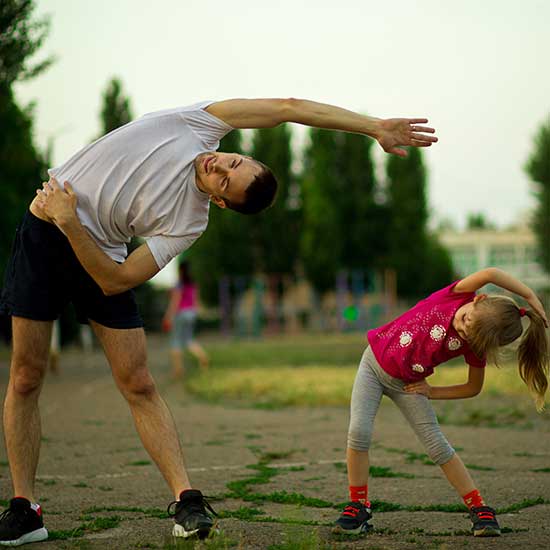
Ultimately, the ‘WHY’ factor for the habits we develop has to do with instilling order and consistency in our daily lives. Life is inherently hectic, even outright chaotic when you consider how tumultuous these COVID-times have been and continue to be. Habits provide a kind of calm, comfort and grounded approach to processing all the stimuli that comes our way. Habits – especially daily healthy habits like stretching, eating healthy or listening to music – can change the way in which we cope with the challenges of everyday life.
It turns out that human beings are fundamentally creatures of habit because our brains crave systems/order. On top of this, the complexities of society have created the need for healthy habits that enrich our sense of self, our ability to self-manage and to enrich our lives. Now that we have a fundamental understanding of why we form habits and how they can impact us, let’s look into what kinds of healthy lifestyle habits you might want to adopt into your day-to-day life.
THE BEST HABITS OF HEALTHY PEOPLE
Snack Like You Mean It!
Snacking has never been a bad thing – animals do it, insects do it, and fish do it because food availability in nature isn’t the most reliable thing. We humans have turned snacks into unhealthy, pleasure-centric moments for meeting our most basic tastebud-needs. Healthy snacks are a great way to stay energetic, balance your metabolism, improve mood or mental faculties, and make sure you’re getting sufficient nutrition throughout the day.
HEALTHY HABIT: Stop snacking on high-sugar, high-salt or processed foods and reach for fruits, veggies, nuts, seeds or some combination thereof. Healthy snacks = energy throughout the day, less weight-gain and improved mental/physical fitness.
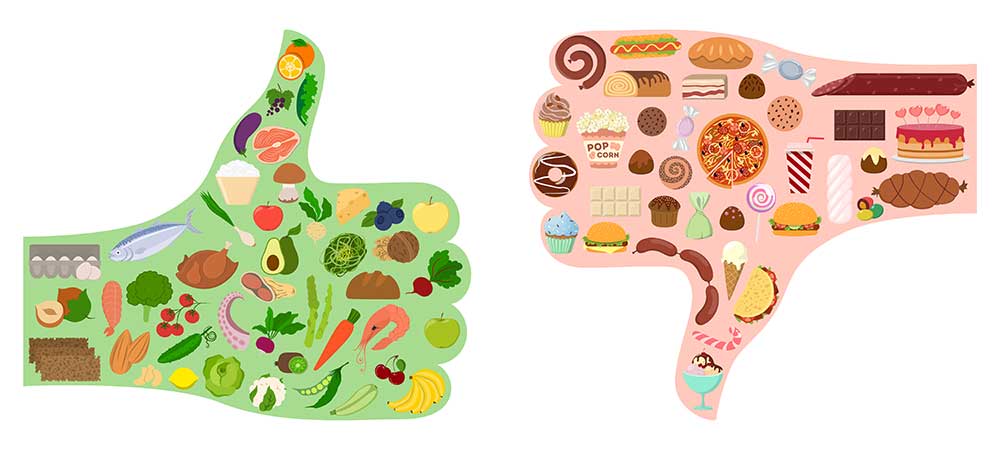
Natural Foods > Artificial Ingredients
Whenever you’re reaching for an item at the grocery store or ordering your groceries online, try to get as many whole foods, natural foods, naturally-derived supplements and organic food additives as possible. Highly processed foods or artificial ingredients can be cheaper, more convenient and can sometimes even taste better, but the short- and long-term risks for your health & fitness aren’t worth these consolations.
HEALTHY HABIT: If it was grown in nature or can be manufactured with minimal human intervention, then it’s probably best for your health & wellbeing.
Work-Workout Balance
It’s easy to fall into the bad habits of working overtime, and on top of a busy day at the office having an intense workout to de-stress. Neither of these are bad behaviors, but the combination of the two can wear you out and risk overwhelming your mind & body. Physical activity is essential to reducing stress and staying fit, but just make sure you’re not pushing yourself too hard between the chaos of your career and your gym.
HEALTHY HABIT: Set schedules and stick to them, but if your job is taking up the majority of your time then give yourself a day or two to relax, or do a less vigorous workout on those particular days.
Go. To. Sleep.
Sleep is one of the lowest priorities for too many of us, for some to no fault of their own. Work, school, sports, life and everything in-between can get in the way of consistent shuteye, but we need to understand the risks of not sleeping enough in direct relation to the benefits of sleeping soundly.
HEALTHY HABIT: Put down your phone/tablet or TV remote and get sufficient sleep – if you do, you’ll be happier as you get the most out of each day, and you’ll be healthier for it.
Water, Water, Everywhere!
You need to stay hydrated throughout the day – yes, even at bedtime – so you should always have a glass or bottle of water with you wherever you go. The pros of drinking water are simple – you will function as efficiently as possible. The cons are much more alarming – lethargy, irritated skin, eyes or gastrointestinal system, pain & inflammation, headaches, etc – so it’s more a game of “limiting detracting factors” when it comes to hydration.
HEALTHY HABIT: Do the “checklist” game with yourself whenever you’re leaving the house, the office or anywhere else: Do I have my phone? Do I have my wallet? Do I have my keys? Do I have my water?!

Consistent Breaks
Downtime is an essential but easy healthy habit that many people have grown accustomed to in recent years. You might’ve heard/read that most successful people are early risers, healthy eaters and avid exercisers, but they’re also consistent with taking brain-breaks or relaxing & recharging. Giving your mind a chance to destress and your body enough rest throughout the day are important for being able to maintain your health & wellbeing.
HEALTHY HABIT: If you have to set reminders on your phone, do it! Try to be mindful of how you’re feeling – mentally, physically and emotionally – and don’t be afraid to take breaks from work/life whenever you need to.
Avoid Overeating
Portioning your food can be a challenge because some days we’re just hungrier than others. It’s good to listen to your body and trust your intuition – if you think you need something more, eat a healthy snack or something that suits the time of day. On the contrary, most of our overeating problems happen at family dinners, wining & dining, or fast-food forays when we’ve got a craving. If you can learn to control how much you eat, you won’t only stay slim & trim but you’ll get more out of the less food you’re eating.
HEALTHY HABIT: Willpower. Willpower. Willpower. Don’t fall victim to your own sugar/salt cravings, but if you can’t say no to more just make sure it’s something healthy and easy to digest (i.e. an apple, some tea, a bowl of granola, nuts and seeds, etc).
Rituals/Routines Are King
All healthy habits are essentially ritualistic or routine-based, but one of the best habits you can implement in your life is to stick to schedules. Nutrition routines, fitness regimes, morning rituals, consistent outdoor activities or scheduling leisure are often overlooked parts of any healthy person’s day-to-day. When you set schedules for yourself and stick to them, you’re supporting the best habit there is: time management.
HEALTHY HABIT: Daily planners, phone reminders or just saying daily mantras out loud can make you a happier, healthier and more productive person – who doesn’t want more of those big three?!
Tame Your Wild Emotions
Whether you suffer from frequent bouts of emotional eating, mood swings or outbursts we can all benefit from some emotional management skills. Nobody likes being in bad moods, and succumbing to negative emotions can be a slippery slope – the more you try to climb out of your emotional pit, the farther down you might fall. Maintaining your emotions is essential to living a happy & healthy life, so do your best to keep them in check whenever/wherever appropriate.
HEALTHY HABIT: Don’t cut-off your emotions, but don’t let them overwhelm you or others either. Understand and appreciate your feelings, make them known or communicate them, and then deal with them in a safe & productive way.

Be Social! (In-Person, Not Media)
It’s almost become a faux-pas these days to be a social person. However, we’re here to say COVID be damned! Social interaction and community are very important to our mental & physical wellbeing, and just because there’s a global pandemic going on doesn’t mean we can’t find safe ways to be together. Don’t let bad moods, busy schedules or government restrictions stop you from being with people you know & love – just be safe and respect others’ feelings and we can all get along while getting through this craziness together.
HEALTHY HABIT: Go outside, ride bikes, go for hikes, play sports, or just lounge in the sunshine together – it’s literally the simplest (and one of the most effective) healthy habits there is!
LIVING THAT EXTREME HEALTHY LIFESTYLE
Living a life full of healthy habits doesn’t have to be difficult or even take any effort at all. Daily healthy habits are meant to be small, manageable things you can do to feel good, be happy and lead you through a healthy life. If something doesn’t work for you, don’t fret! Not all people are creatures of habit, and not all habits are created equally.
You know your mind & body better than anyone else, so don’t let someone tell you otherwise. Always be mindful of the what, how, when and why you might be habitually doing something. The more attention you pay to your emotions & behaviors, the better at managing them you will become. So, be in-tune with yourself and your life will play out as a beautiful rhythm of good habits, healthy living and happy memories. It’s that simple.
FAQ’s
What are healthy food habits?
Healthy habits are all about being consistent with your diet, exercise, mental stimulation and sleep. Eating lots of fruits, vegetables, healthy grains, lean protein sources, and making sure you are getting all the essential vitamins & minerals you need. Staying active is also very important, as is exercising your brain. Getting sufficient rest or sleep cannot be ignored either as one of the most habits of healthy people.
How do you start healthy habits?
The best way to learn what are healthy practices is to start small. Try to focus on doing simple things that you can accommodate without upsetting your daily healthy habits that you’ve already established. In the beginning, it’s all about being consistent and training your brain to adopt healthful habits – easy healthy habits that compliment your day-to-day.
What good habits should we follow?
Most healthy habits of living a fulfilling life will include a balanced diet, active lifestyle, mentally engaging work or leisure, and sufficient rest, relaxation and sleep. The important thing about your daily healthy habits is that they suit your comfort levels, lifestyle and schedule. Convenience is all about comfort, and being consistent means you need to have some level of confidence or control over your circumstances. You don’t need to subscribe to extreme healthy lifestyles, just the healthy lifestyle habits that make you feel happy and improve your wellbeing.
What are the best habits?
The best kinds of healthy habits are the kinds that compliment your work-life balance without upsetting your day-to-day too much. Many people feel like they have to make extreme healthy lifestyle changes in order to be at their best, but what is most effective for you may not work for others, and vice versa. The best healthy habits of living a good life are usually built around “enjoying the smaller things in life” – i.e. eating well, getting exercise, sleeping well, having fun and being happy.
What are the habits you should avoid?
There are many bad habits that contradict healthy living, almost too many to count. Things like drinking too much alcohol, smoking/vaping, being lazy, taking your anger out on those close to you, and staying up too late can create major problems for you and your loved ones. Any habits that don’t add value to your life in the long-term, but might have short-term gratification are typically the worst kind.
Why do we need habits?
Habits, especially daily healthy habits, are important for many people to stay controlled, consistent and confident in their lifestyle. Healthy habits can provide calmness, help you to cope with stress, make you feel in control, or enhance your physical & mental prowess at work or at home. Easy healthy habits are best because the better suited to your lifestyle a habit is, the more chances you’ll find success with it.

